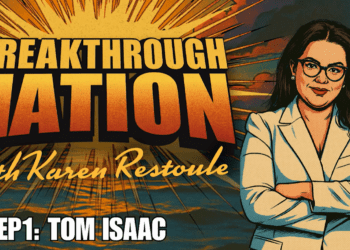Writing in the Globe and Mail, Munir Sheikh explains that taxpayers aren’t able to appreciate the true size of government in Canada because until now, no one has accounted for tax expenditures. Sheikh, who is former Chief Statistician of Canada, has authored a report for the Macdonald-Laurier Institute titled “Estimates of the Size of Government: Adjusted for Tax Expenditures”. He notes that compared to simply measuring program spending as a portion of GDP, adding tax expenditures shows the federal government is 50 percent larger than previously believed.
Munir Sheikh, February 7, 2014
How big or small is the government? How much tax do Canadians really pay? How much does the government really spend?
These are some basic public policy questions. The Minister of Finance will deliver his annual budget on Feb. 11, but don’t hold your breath that there will be answers to these questions. This is because, in the presence of what some call tax expenditures, statistics on the size of government, government spending and revenues are all understated.
Consider an example. Suppose the general taxpaying population pays $500 in taxes and the gross domestic product (GDP) is $1,000. The size of government is 50 per cent of GDP. Now, suppose the government decides to pick some selected groups of individuals and businesses and provides them assistance through $100 less in tax than they otherwise would have paid if they themselves used those monies for things the government would otherwise have provided directly. The government then spends the remaining $400 on a variety of other things.
Published statistics would show the size of government, popularly captured by the expenditure-to-GDP ratio, at 40 per cent. In reality, as mentioned earlier looking at the revenue side, it is 50 per cent. We can get this estimate by adding tax expenditures to direct government expenditures.
In the Canadian federal tax system there are about 200 such selected tax concessions or tax expenditures. Examples include, without taking a view on their appropriateness, tax credits for research and development, half inclusion of capital gains in income, education and charity related tax credits, the GST/HST credit and GST/HST exemptions for residential rents and municipal transit.
A number of major challenges in estimating tax expenditures explain this state of affairs. They include defining a benchmark tax system, non-availability of many tax expenditure data and the difficulty of aggregating those estimates for individual items that do exist. However, we should deal with these challenges, rather than avoid them, so that public policies are based on the best possible facts about the most important variables. A recent paper I authored for the Macdonald-Laurier Institute makes an effort to overcome these challenges to the extent possible, and provides the first estimates of the size of government adjusted for tax expenditures.
Adding tax expenditures in the three tax bases of personal and corporate income and sales tax – for which data are available – to direct expenditures increases the size of total government (provincial, federal, territorial and local) by 10.1 per cent of GDP, from 44 to 54 per cent, or about a quarter. Furthermore, when program spending has been cut, there has been no downward trend in the tax-expenditure-inclusive size of government. These estimates still understate the real size of government since no information is available on a significant portion of tax expenditures.
This raises the question of whether or not governments should rely on tax expenditures to achieve their policy goals.
There are a number of valid circumstances when the use of tax expenditure is the most efficient public policy instrument, such as when there is a need for public assistance to be tied to the level of income. There are also many reasons why their use is problematic, such as their non-transparency and reduced lack of accountability. The MLI paper provides both the case for and against tax expenditures and proposes two key principles for their use: all proposals for tax expenditures must meet the test for an equivalent direct expenditure program; and a proposal should be considered for delivery as a tax expenditure only if it can be demonstrated that it would be administratively more efficient.
A better understanding of the true size of government is vital to the appropriate conduct of public policy. Governments provide many improvements to outcomes in a variety of areas but these actions necessitate the collection of taxes that have negative economic effects. It is important to be fully informed of these costs and benefits while making public policy decisions. Transparency and accountability in taxation are important.
Munir Sheikh is a former Chief Statistician of Canada and a former Associate Deputy Minister of Finance. This article is based on the paper “Size of Government Adjusted for Tax Expenditures” published by the Macdonald-Laurier Institute.




